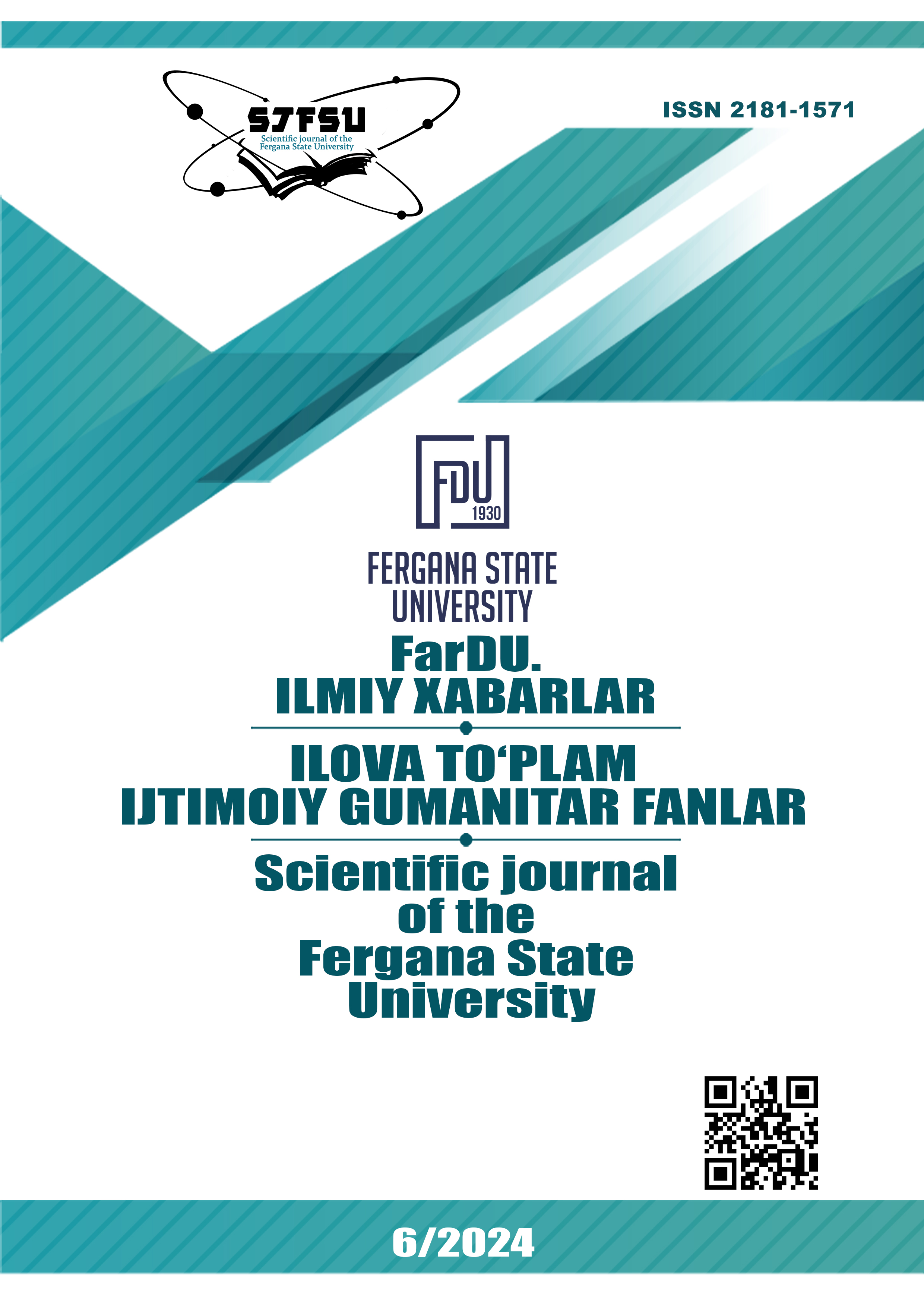NATIONAL MENTALITY AND IDIOMS: THE CULTURAL INFLUENCE OF GERMAN AND UZBEK PHRASEOLOGISMS
Keywords:
phraseology, national mentality, language and culture, worldview, national identity, cultural characteristics.Abstract
The article explores the phraseological expressions in the German and Uzbek languages, focusing on how they reflect the national mentality and worldview of each culture. Phraseologisms, as significant cultural and linguistic tools, mirror the values, traditions, and philosophical outlook of a society. This study examines how phraseological units express historical experiences, religious beliefs, and social views, while also considering their cultural significance in the context of national identity. The comparison of German and Uzbek phraseologisms reveals their respective roles in forming cultural integration and understanding of national selfhood. By analyzing these linguistic expressions, we gain insight into how language functions as a carrier of culture, identity, and worldview.
References
Strelchuk, N.K. (2001). O‘zbek frazalogizmlari va ularning madaniy konteksti. Toshkent: Akademnashr.
Kaal, H.J., Kaal, M., & Kaal, S. (2009). Sotsiolingvistik yondashuvda nemis frazalogizmlari: Madaniy xususiyatlar va ijtimoiy kontekst. Berlin: Verlag.
Tareva, G.S. (2005). O‘zbek tilidagi frazalogizmlar: Madaniy identifikatsiya va tilshunoslik. Tashkent: Fan.
Dmitriev, V. Yu. (2006). Frazelogizm va tilshunoslik: Nazariy asoslar. Moskva: Yazyki slavyanskikh kul'tur.
Popova, Z.D., & Sternin, I.A. (2007). Frazelogizm: Sotsiolingvistika va madaniyatshunoslik. Moskva: Akademiya.
Kohl, H. (2011). The role of proverbs and idioms in reflecting national identity and worldview. Journal of Cultural Studies, 18(3), 45-58.
Sharafutdinova, M.A. (2004). Idiomatik frazalar va ularning semantik tarkibi. Samarqand: Samarqand universiteti nashriyoti.
Wierzbicka, A. (2006). Cross-cultural pragmatics: The semantics of human interaction. Berlin: Mouton de Gruyter.
Gumbrecht, H.U. (2001). The cultural significance of idioms in contemporary German discourse. Cambridge University Press.
Kovács, J. (2013). Comparative Phraseology in Cultural Contexts: A Case Study of German and Hungarian Proverbs. Linguistics and Literature, 12(2), 21-34.
Downloads
Published
Issue
Section
License
Copyright (c) 2025 Scientific journal of the Fergana State University

This work is licensed under a Creative Commons Attribution-NonCommercial-NoDerivatives 4.0 International License.
How to Cite
Most read articles by the same author(s)
- , TRANSLATION OF NATIONAL-CULTURAL CHRACTERISTICS IN TRANSLATION DICTIONARIES , Scientific journal of the Fergana State University: No. 3 (2024): Scientific journal of the Fergana State University. Application set (Social humanities sciences)
- , GERMAN AND UZBEK PHRASEOLOGISMS IN THE CONTEXT OF NATIONAL WORLDVIEW: BASED ON CULTURE AND LINGUISTICS , Scientific journal of the Fergana State University: No. 6 (2024): Scientific journal of the Fergana State University ADDITIONAL COLLECTION (Social humanities sciences)

